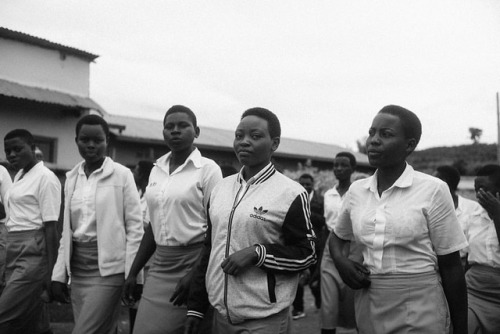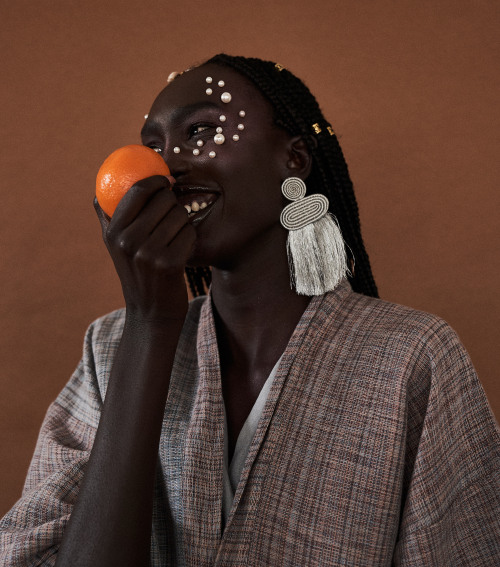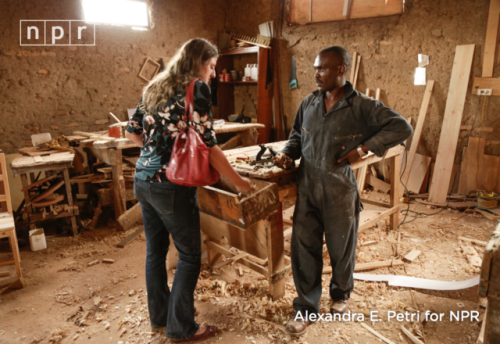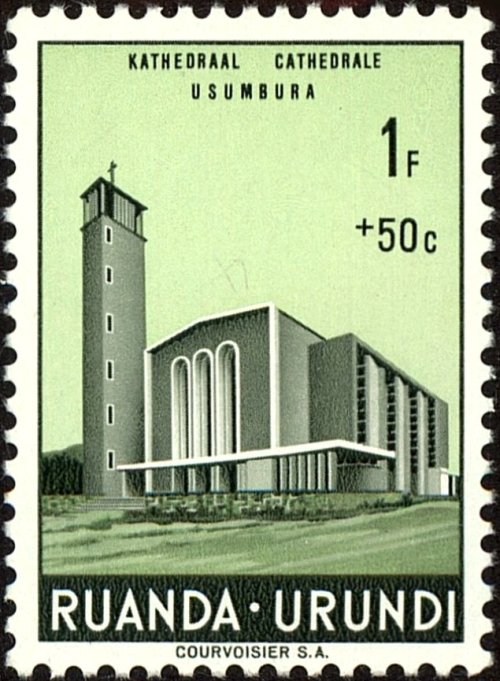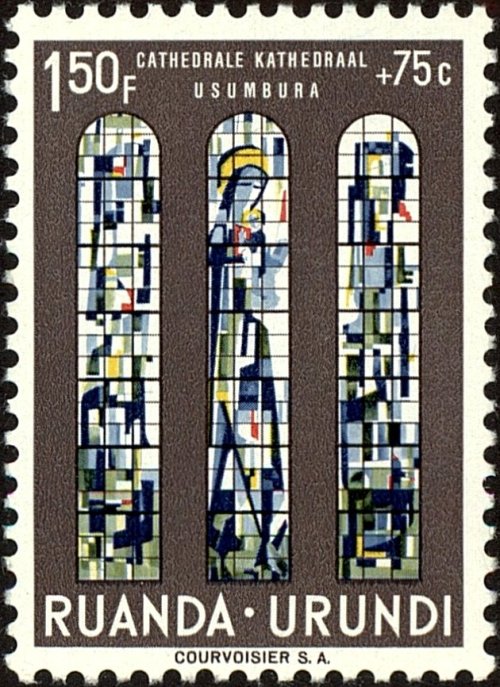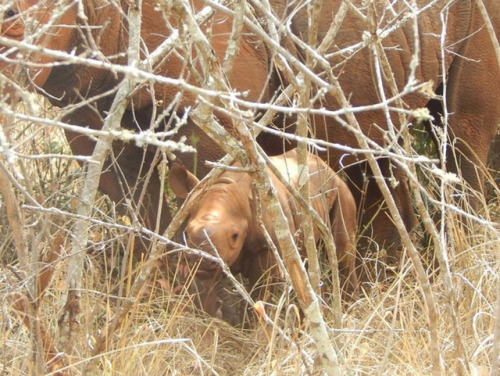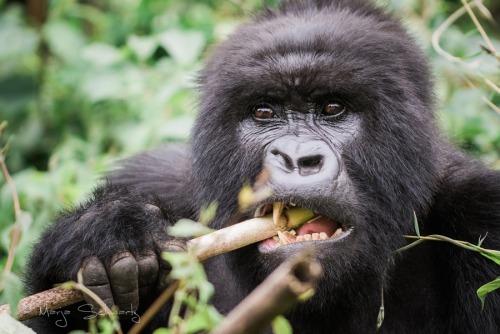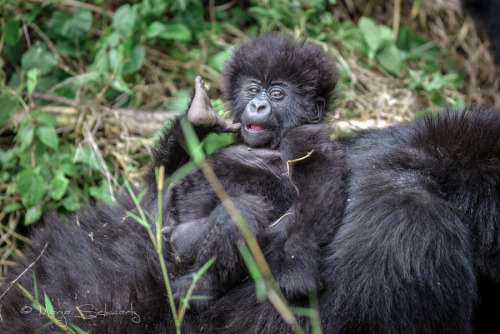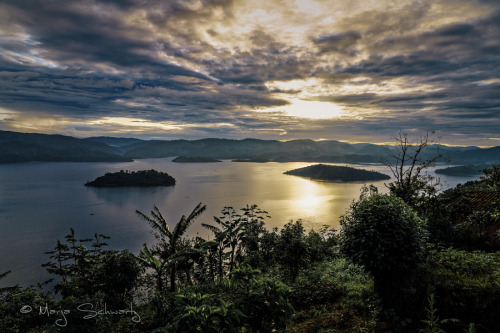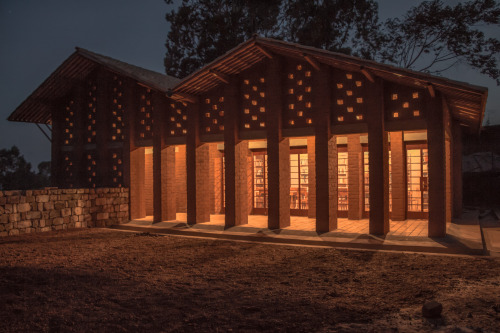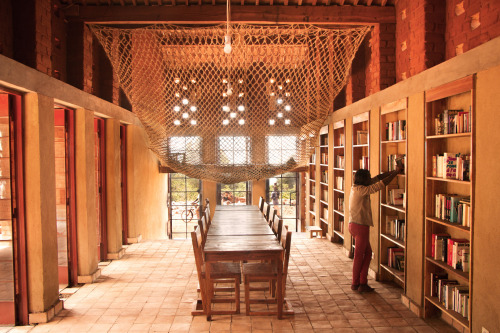#rwanda
Chris Evans shows support for the Free Paul Rusesabagina campaign. (x)
Because we need to verify everything, here’s the original tweet and the story via the Reuters news service: Paul Rusesabagina is a political opponent of the current Rwandan President, was kidnapped and put on trial for crimes he did not commit
And Don Cheadle

Post link
✊ Girls for girls | @josselin
.
.
.
.
.
.
#photography #girls #rwanda #africa #community #empoweringwomen #contemporaryart
https://www.instagram.com/p/Bve1zmgBGi6/?utm_source=ig_tumblr_share&igshid=bldo37qppldz
Post link


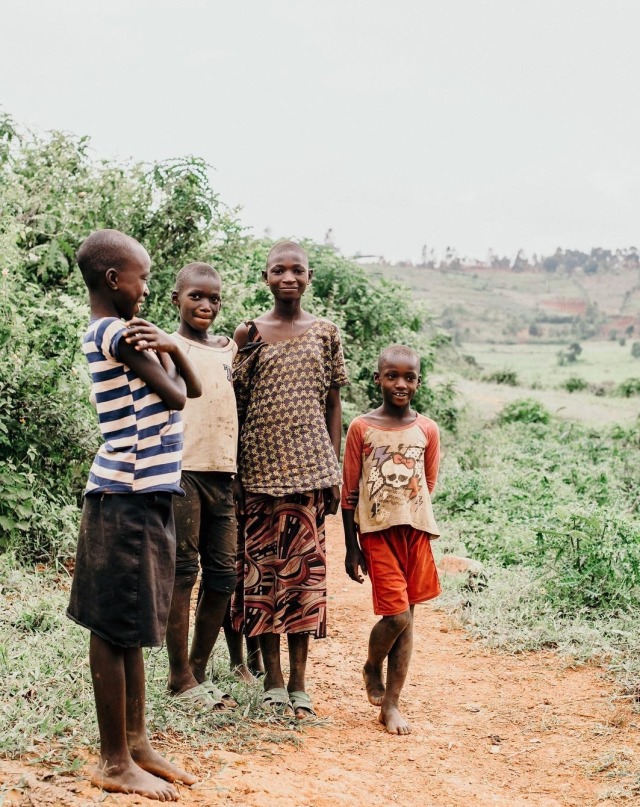

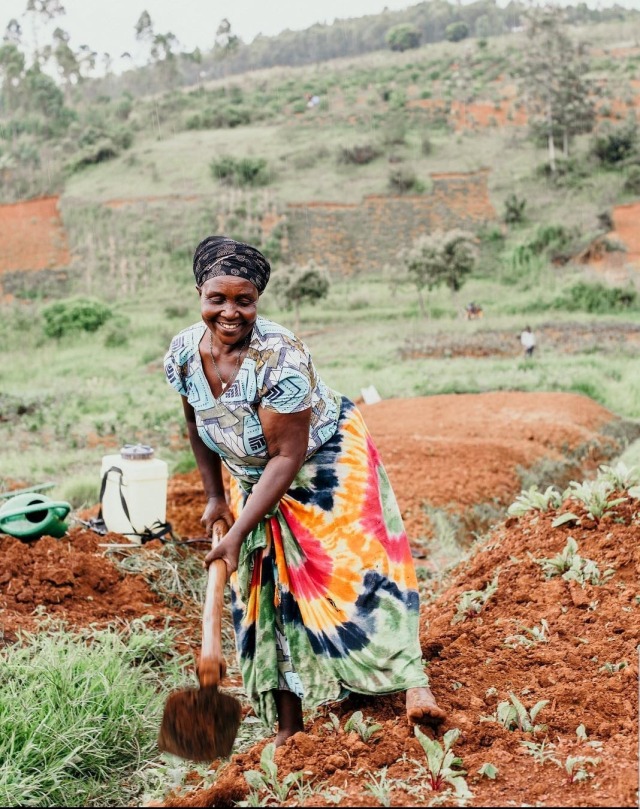
Kigale, Rwanda (@hannahargyle IG)
Daring To Dream: A Carpenter Tries To Build A Piano In Rwanda
Désiré Mulumeoderwa, a carpenter of 20 years, is on a quest to make the Rwanda’s first upright piano.
It would be the first instrument produced in Africa since South Africa-based Dietmann, a German company, shut down in 1989.
But the road to victory is a difficult one. Much like Rwanda, which is known as the “land of a thousand hills,” the mission to build a piano faces a series of challenges, from accessibility of parts to the skills necessary to make it a success.

With Mulumeoderwa’s piano-building partner Marion Grace Woolley, they founded Kigali Keys & set up a crowdfunding campaign. In June, they raised $8,000. For 1 day a week, Mulumeoderwa works on the piano. But he’s needed help finding materials for the nearly 12,000 piano parts.
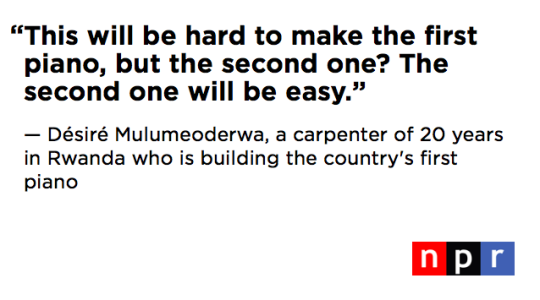
Post link
A Rwandan refugee credits his success to his mom
This is Cedric Habiyaremye and his mom. The former refugee is a rising star in the field of global agriculture.
He says his mom is his biggest inspiration. When he was a boy, and their family fled to Rwanda to a refugee camp in Tanzania, his mom offered strong words of support when they faced hunger. When he was a Ph.D. student, she was the first to test out his new idea: growing quinoa in Rwanda.
Read about Cedric and his mom here
Post link
Rwanda, 2001-present
The Republic of Rwanda is a sovereign state in central and east Africa. During an approximate 100-day period in 1994, estimated 500,000–1,000,000 Tutsi and moderate Hutu were killed by members of the Hutu majority.
The flag was changed because it had become associated with the brutality of the 1994 genocide. Instead of the pan-African colours, the flag now is blue (standing for happiness and peace), yellow (economic development) and green (hope of prosperity). The sun represents enlightenment.
Post link
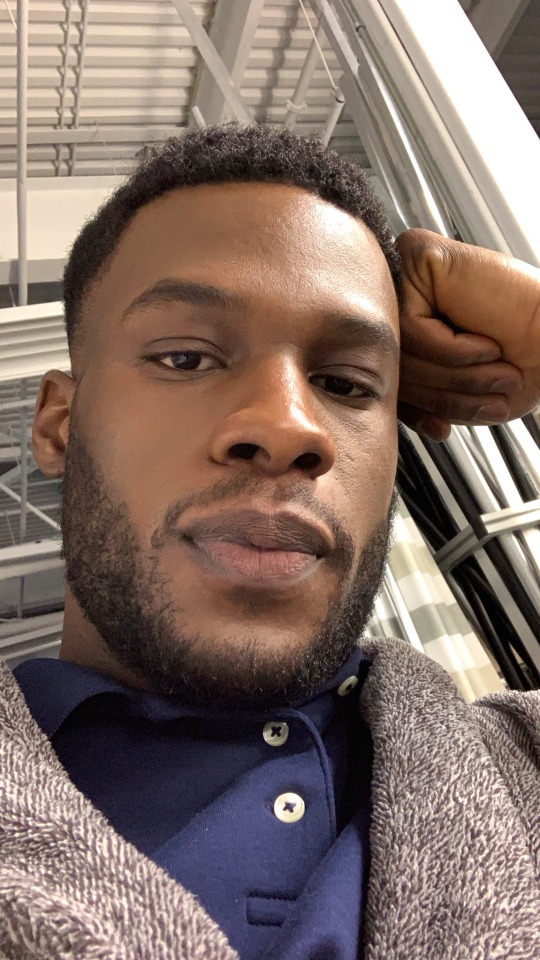
IG yug0h
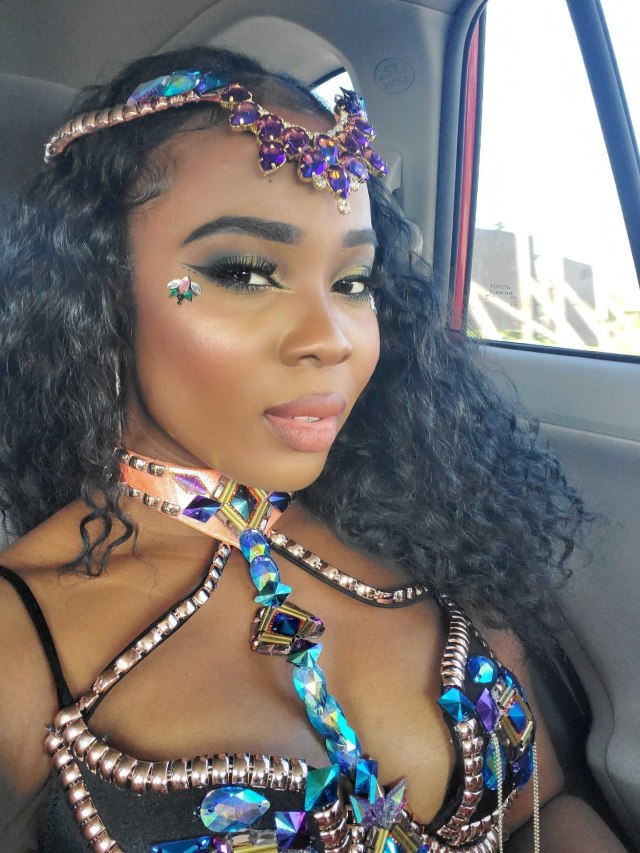
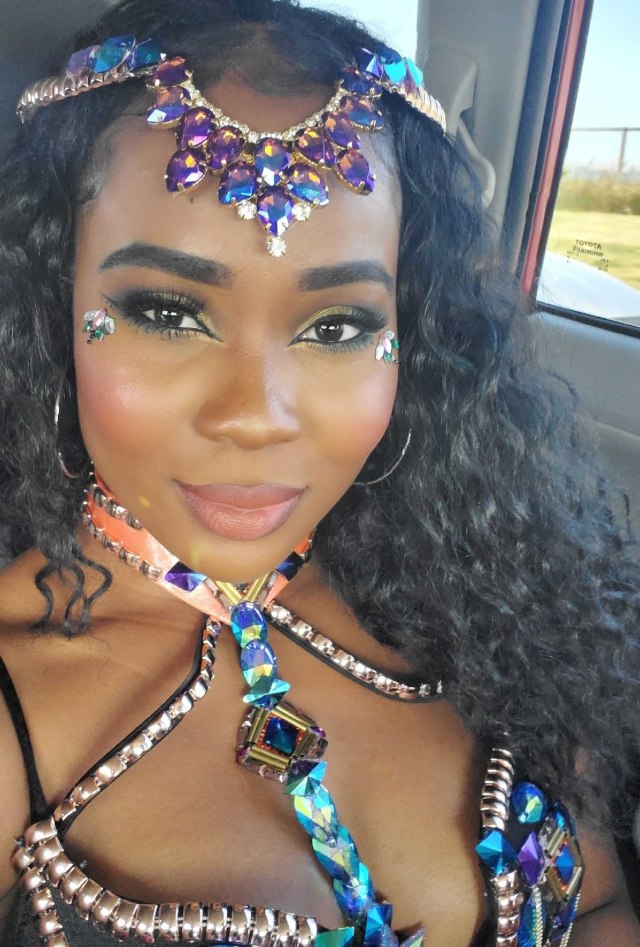
Ig: ennaezaa
Born St.Vincent
Ancestry West African
Last September in Trinidad I celebrated having visited my 50th country and wrote a post (find it by clicking here) listing the nations I’d been to and linking to some stories I had shared about them.
This weekend I’ve hit the next interval with Cyprus being my 60th country!
Here are the places I’ve been in the past 8 months that have gotten me from 50 to 60:
50. Trinidad and Tobago
51. Puerto Rico (some people might not count this since it is technically part of the U.S, but as it is not a State and has a very different culture, I do)
52. St. Kitts and Nevis
53. South Africa
54. Namibia
55. Zambia
56. Botswana
57. Saudi Arabia
58. Qatar
59. Egypt
60. Cyprus
I’ve also revisited a few countries in the meantime: Rwanda, Tanzania, and the UAE.
It has been interesting to see the number continuing to increase, especially as I am realizing that more and more I’m feeling inclined to visit familiar places again. I decided to move back to the UAE, want to spend more time in Tanzania, and am thinking of visiting family in Germany and friends in Israel. Of course, there are many new places I want to see- and hope to get to them sometime soon! It will be an interesting balance to see how I spend my future travels. I’ll keep you updated : )
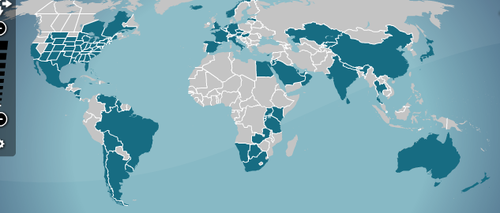
I love learning. It sounds a bit reductive, and unfinished as you might ask, “about what?” and feel unanswered when I respond with “everything.” I truly just like the process of gaining knowledge. Of course, specific interests come and go - as a child I spent a lot of time thinking about the Olympics and Japan, I moved on to geography and globalization in high / boarding school (with the occasional celebrity fascination), and in college I focused on development studies and identity studies. They all have led in some ways to one another, and that is one of the most fun things about growing older- you know more. You can move into sub-sectors, building deeper and more elaborate knowledge on specific examples, and then even be able to produce the knowledge yourself!
I loved my entire formal education because it nurtured my curiosity and gave me the tools and people to answer my questions and to prod deeper. I was very fortunate to go to both a boarding school and a university where students are invited, suggested, and even pushed to develop their own learning path- decide what they want to learn about, and then do that. But at the same time, there do exist parameters of some requirements, and even if you are in a class you want, the syllabus will always have a dull section and there may be limits on how you can pursue your research and present your findings (i.e you may have to google stuff and give a powerpoint, whereas you really want to travel somewhere and make a documentary). What I’ve liked most about being in “the real world” the past few months is that I feel like the slate is clean- I don’t have to keep learning new things if I don’t want to (no more picking classes every 6 months) but seeing that I do want to, I can pick anything and do it however I’d like!
In these few months since graduation, what I’ve kept myself busy thinking about are religion and spirituality, the Rwandan genocide and development in the country since then, class and privilege - especially in young adults, North Korea, and professional tennis. It is clear that these interests are too many to focus on equally and that some will remain overtime and my knowledge will deepen, and some will be more ephemeral- a book or two, a documentary, and a few conversations.
In thinking about these levels of knowledge across issues, and specifically when on a RwandAir flight to Kigali asking myself, “how much do I really know about Rwanda?” I came up with the process of The Growth of Knowledge below:
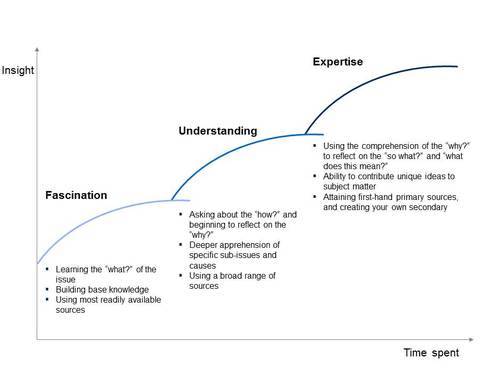
It is very simple yet, I think, also useful in giving some sort of direction in reflecting on how knowledge on a subject evolves- and importantly- how the level of insight grows with each step. It is also important to note that for different issues each step may take longer or shorter, requiring less effort to move between them, than the others. For example, it is very easy to be fascinated by an event like the Rwandan genocide, but the learning curve to get up to understanding is very steep. Alternatively, moving from fascination to understanding about professional tennis is much easier. In this example it comes down to the difficulty of the content itself: comprehending human emotion and causes of violence is much more complicated than understanding the way a sport works. But the learning curve can also be hindered or catalyzed by the availability of or access to knowledge- for example it is impossible to learn specific things about North Korea because it is well-guarded and secretive, but the Korean language itself is in countless books, media, etc so access to acquiring that knowledge is easier.
What divides the three steps of course, also depends on the subject matter, but can be assessed based on four- very interrelated questions (partly in the graph itself as bullet points).
- The first is"why you know?“ - going from a general interest to deeper desire for holistic knowledge and increasing insight.
- Second, "What you know?” which starts with the basic facts and figures, grows into various sub-sectors of knowledge, and increases further with first-hand personal understanding.
- Third, “How you know?” starting with the most readily available and easy to access information and then growing in specificity, complexity, and personal unique information from experience and exposure.
- Fourth, “What you do with what you know?” this goes back to how insight increases with each step. It involves deeper and deeper questioning and clarifying those who know more until slowly you become that someone who “knows more.” You must then begin to think about how to present the information and analyze what is important, what needs to be further examined, and then begin to do that examining yourself and helping others to go through the steps towards knowledge.
Again, this is a simple tool for reflecting and in few ways is it quantifiable or scientific- but I think it is useful in asking the important questions of “How can we learn?” and “How much do we know?” and to also show that growing in knowledge to expertise requires an increase in insight most of all- that constantly reading simple books on a subject will never make you really understand- we need to increase the complexity and push ourselves to build our insight. The tool also gives direction and reasoning to learning more and what to do when we know more- it is almost a motivation or a map of learning.
To end, I must say that similarly to the model itself, I feel that “liking to learn” can be a process on its own accord- and that the model helps to move from “understanding” learning to “expertise” on learning- and as I continue to think more about learning and talk with others who know much more, the model will adapt.
Keep thinking and keep learning!
In yet another example of colonialism gone awry, the Kingdoms of Ruanda and Burundi were stitched together as the co-territory of Ruanda-Urundi, claimed as part of German East Africa, passed on to the Belgians after the Great War, administered by the United Nations post-WWII, and finally gaining independence in 1962 as the Kingdom of Burundi and the Republic of Rwanda. As perhaps you recall, this artificial federation did little to coalesce the distinct cultures and history of the two, and things were very bad in that tiny region of Sub-Saharan Africa for many years.
Stamp details:
Stamp on top:
Issued on: August 25, 1931
From: Usumbura, Ruanda-Urundi
MC #44
Stamps on bottom:
Issued on: December 18, 1961
From: Usumbura, Ruanda-Urundi
MC #183-185
Recognized as a sovereign state by the UN: No
Claimed by: Republic of Burundi; Republic of Rwanda
Member of the Universal Postal Union: No
Post link
Ineza, the first black rhino baby born in Rwanda in over a decade!
Photo: Augustin Manoraroa
Post link
Hyppolite Ntigurirwa has a vision for peace. After witnessing the horrors of genocide, he turned to the transformative power of art to help spread his message of peace. He formed a theater group at his school in Rwanda as a way to unite students from different ethnic groups. “We witnessed the power of performing arts to bring people together, challenging the status quo and starting the long process of social change,” he said of the experience. Since then, Hyppolite has continued to use theater as a tool for healing, reconciliation, and peacebuilding in post-conflict communities both in Rwanda and abroad.
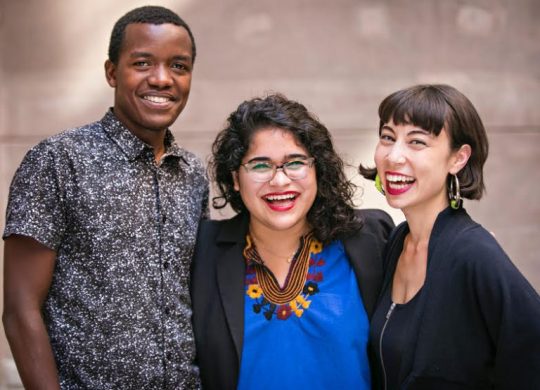
This fall, Hyppolite participated in International Art & Artists’ J-1 scholar program. He is completing an artist-in-residence program with Arts Connect International, an organization that cultivates and connects leaders in the arts field committed to cultural and social inclusion. The program has given Hyppolite the opportunity to connect with other artists and social activists, acquire key arts management skills, and further develop his artistic body of work. “My experience with Arts Connect International has been a fantastic opportunity to grow as an entrepreneurial artist and leader,” Hyppolite said. Here are some insights into Hyppolite’s time in Boston with Arts Connect International.
Can you tell us a bit about your unique perspective and background, and how it has helped you to become an arts leader?
At the young age of seven in Rwanda, a few months after surviving the genocide against the Tutsi, I was frustrated by not finding a means to tell the horror I experienced and transmitting my message to the larger community. I was not able to recount my story and transmit my message of peace until a teacher helped me create a theatre club. Since the club included children from both survivors’ families and perpetrators’ families, it wasn’t easy to start up as an inclusive community just after the genocide. However, we experienced the power of performing arts when the whole community enjoyed our performances and everyone showed their support. I continued to use theatre as a vessel for peace both in high school and college, and now I combine my experiences of genocide with sociological theories, practices, and theatre techniques to help prevent the inter-generational transmission of hatred.

Tell us more about your experience so far with Arts Connect International.
Working with Arts Connect International, as a global change agent, has been really useful to me in many ways. First of all, having been the first international artist to be selected for their Artist-in-Residence program was a tremendous asset to me in terms of accessing artistic and leadership skills, knowledge, and the experiences of all sorts of people in Boston. Arts Connect International not only provides this exposure but also provides professional and applicable guidance to having a greater impact on the community at large.
What is your favorite cultural activity to do in Boston?
Boston is a hub of people with passion for social change and innovation. There is always a lot going on in the city! There are loads of historical sites, including museums, freedom trails, and educational institutions. My favorite cultural activities in Boston include attending amazing networking and discussion events on social change and visiting different tourist spots (both historical and modern). The best part about being in Boston is organizing an event and having people attend.
What have you learned during your J-1 program?
During my residence with Arts Connect International, I have gained the extensive knowledge, skills and resources necessary to further my professional work and career as an artistic director. Among other things, I have gained experience and learnt a great deal about program management; arts project management, playwriting techniques, and sociometric techniques in theatre. I’ve also acquired strategic planning skills, leadership skills, budget and project management skills, communication skills, fundraising skills, and cross-cultural competency skills. Last but not least, I’ve learnt about monitoring and evaluation, arts education and pedagogy, creating a theory of change model, digital marketing and promotion, as well as entrepreneurial and development models for individual and organizations.
What does cultural exchange mean to you?
As far as how I interpret cultural exchange, I understand “cultural exchange” to include sharing experiences, values, knowledge, skills and customs with the mission of making the world an infinitely more inclusive and peaceful place.
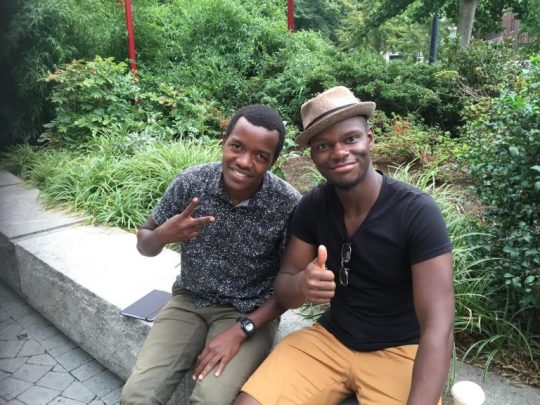
A version of this story was originally published in International Arts and Artists. Read more stories like this on the Route J-1 blog.
Muyinga Public Library - Burundi Rwanda
In rural villages where internet connectivity is limited, books are used as sources of knowledge and libraries are of increased significance. Muyinga Library built in 2014 serves as both a school and children’s center for the town of Burundi.
Post link


